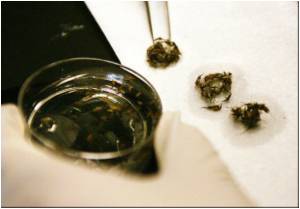Highlights
- Nonalcoholic fatty liver disease (NAFLD) is linked to hepatocellular carcinoma and also to cancers outside the liver like colorectal and breast cancer
- NAFLD is the most prevalent liver disease in many countries around the world
- NAFLD can increase the risk of liver, colorectal, and breast cancers
Nonalcoholic fatty liver disease and Hepatocellular Carcinoma
Kim also said, "Despite its strong relationship with HCC development, little attention has been paid to the association of NAFLD with the development of other extrahepatic cancers. Our study presents statistical evidence that NAFLD is associated with extrahepatic cancers. We hope this study will raise awareness of the increased cancer potential that NAFLD might have."
This study is retrospective in nature. The research team evaluated the records of about 26,000 Korean individuals who had undergone health checkups from September (2004) through December (2005). These individuals were not diagnosed with cancer within the one year period and were followed for an about 7.5 years.
In this study, about 8,721 (33.6%) of the Korean individuals were diagnosed with NAFLD, and the incidence of cancer was 32 percent higher among them when compared to the non-NAFLD group.
Individuals with NAFLD were found to be 16.73 times more at risk of developing HCC, twice likely to develop colorectal cancer (men), and women were almost twice likely to develop breast cancer.
Individuals who had a high NFS score were at 87 percent increased risk, and those who had a high FIB-4 score were found to be at a 74 percent increased risk. These scores reveal whether the patient is at risk of cancers and HCC.
Risk of Liver, Colorectal and Breast Cancers
"Our results suggest that patients with NAFLD require multidisciplinary evaluation with particular attention to the development of cancers. Further studies are needed to specify which high-risk groups among patients with NAFLD carry a greater risk of developing specific cancers, including HCC, colorectal cancer, and breast cancer and that we should pay more attention to the cancer potential of NAFLD in clinical practice," explained principal investigator Han Chu Lee, MD, of the Department of Gastroenterology, Asan Liver Center, Asan Medical Center, University of Ulsan College of Medicine, Seoul, Republic of Korea.
Peter Jepsen, Ph.D., of the Department of Hepatology and Gastroenterology and Department of Clinical Epidemiology, Aarhus University Hospital, Aarhus, Denmark, and co-authors expressed their view in an accompanying editorial.
NAFLD is going to be the most prevalent liver disease in many countries around the world. However, physicians are yet finding ways to determine precisely why care should be taken about NAFLD.
The research team had queries as to if it is merely a bystander, a manifestation of the metabolic syndrome that results in cardiovascular disease or is it a liver disease?
Dr. Jepsen concludes that despite specific issues, the Korean cohort study conducted by Kim et al. provides relevant and valid information on the link between NAFLD and cancer risk with definite evidence on its healthy relationship with HCC.
Source-Medindia
















